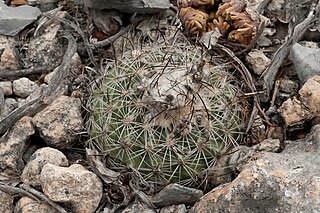Dalbergia oliveri is a species of legume in the family Fabaceae which grows in tree form to 15 – 30 meters in height. The fruit is a green pod containing one to two seeds which turn brown to black when ripe. It is threatened by habitat loss and over-harvesting for its valuable red "rosewood" timber.
Dendrophorbium scytophyllum is a species of flowering plant in the family Asteraceae. It is found only in Ecuador. Its natural habitat is subtropical or tropical moist montane forests. It is threatened by habitat loss.
Fleischmannia obscurifolia is a species of flowering plant in the family Asteraceae. It is found in Ecuador and Colombia. Its natural habitats are subtropical or tropical moist lowland forests and subtropical or tropical moist montane forests. It is threatened by habitat loss.
Dendrophorbium floribundum is a species of flowering plant in the family Asteraceae. It is found only in Ecuador. Its natural habitat is subtropical or tropical moist montane forests. It is threatened by habitat loss.

Hypericum scopulorum is a species of flowering plant in the family Hypericaceae. It is endemic to Socotra, an island archipelago that is part of Yemen. It is a common plant in shrubland habitat, and it is a dominant species in some areas along with Cephalocroton and another local endemic, Helichrysum rosulatum.

Orania ravaka is a species of flowering plant in the family Arecaceae.
Satranala decussilvae is a species of flowering plant in the Arecaceae family. It is a palm endemic to Madagascar. It is the only species in the genus Satranala, and is threatened by habitat loss. There are perhaps 200 mature individuals remaining.
Naufraga balearica is an extremely rare species of flowering plant in the family Apiaceae, and the only species in the genus Naufraga. It is endemic to the Spanish island of Majorca, where it is found only at the base of cliffs at the north of the island near Pollença. A population was discovered on Corsica in 1981, but it had died out by 1983, and it is not clear whether it arrived naturally. Its natural habitats are Mediterranean-type shrubby vegetation and rocky shores.

Campylospermum is a genus of plants in the family Ochnaceae.

Campylospermum serratum is a plant in the family Ochnaceae. The specific epithet serratum is from the Latin meaning "with teeth", referring to the leaf margin. It is found in Tropical Asia, from Sulawesi, Indonesia to Hainan, Zhōngguó/China and over to southwester India. Gomphia serrata was a previous common name for the species. The plant is used for it wood and its sap is used in folk medicine and in the past for teeth-blackening.
Camptostylus ovalis is a species of plant in the family Achariaceae. It is found in Cameroon and Nigeria. Its natural habitat is subtropical or tropical dry forests. It is threatened by habitat loss.
Ouratea amplectens is a species of plant in the family Ochnaceae. It is found in Ghana and Liberia. It is threatened by habitat loss.

Turbinicarpus saueri is a species of plant in the family Cactaceae.

Turbinicarpus schmiedickeanus is a species of plant in the family Cactaceae.
Rapicactus subterraneus, synonym Turbinicarpus subterraneus, is a species of plant in the family Cactaceae. It is endemic to Mexico. Its natural habitat is hot deserts.
Craspidospermum is a monotypic genus of plant in the family Apocynaceae endemic to Madagascar. As of August 2013 the World Checklist of Selected Plant Families recognises the single species Craspidospermum verticillatum.
Chieniodendron is a genus of plant in the Annonaceae family. It has only one species Chieniodendron hainanense native to mainland China and Hainan. It is threatened by habitat loss.

Pterocarpus officinalis, the dragonsblood tree, is a species of flowering plant in the family Fabaceae, native to southern Mexico, Central America, the Caribbean, and northern South America. It is typically found in coastal freshwater or slightly brackish habitats, in association with mangroves that occupy the more saline areas. Its timber is commercially traded.

Chrysophyllum gonocarpum is a tree in the family Sapotaceae, native to South America.

Chrysophyllum venezuelanense is a tree in the family Sapotaceae, native to the tropical Americas.









